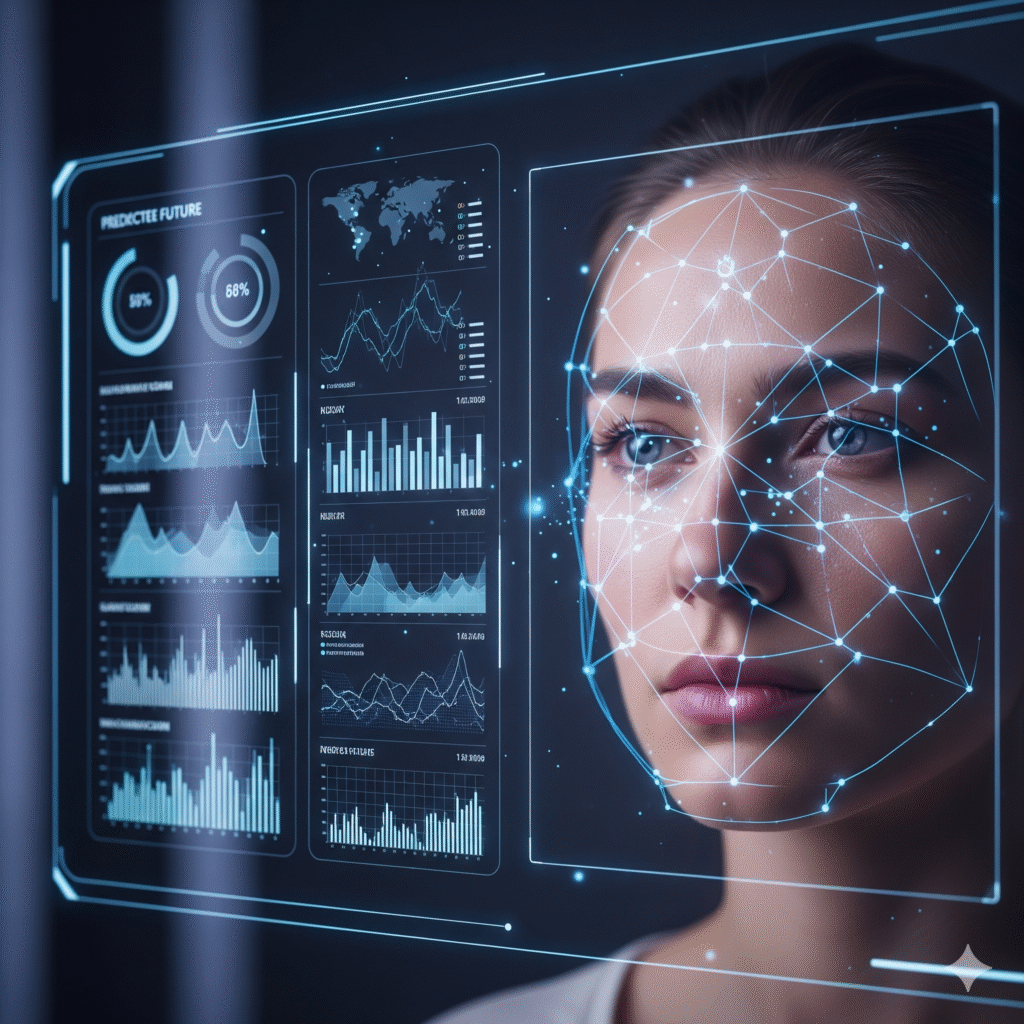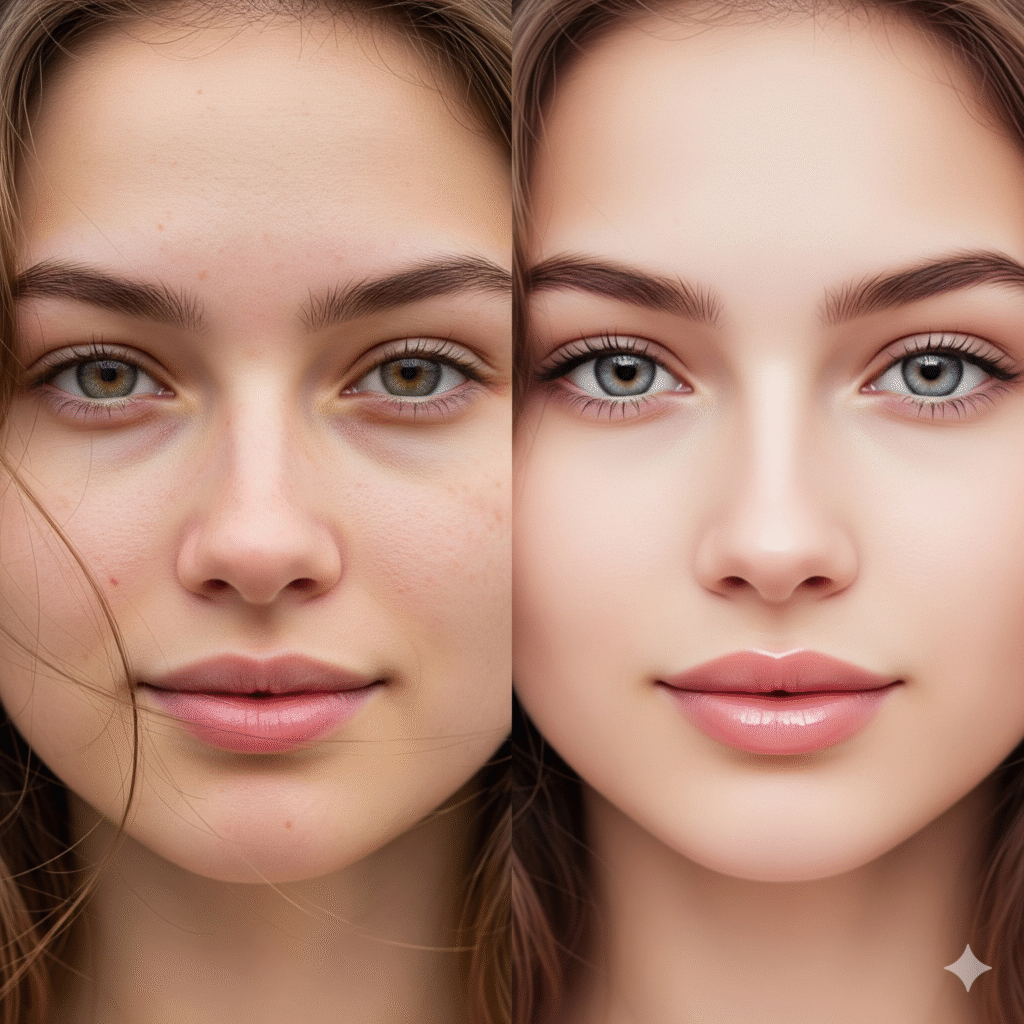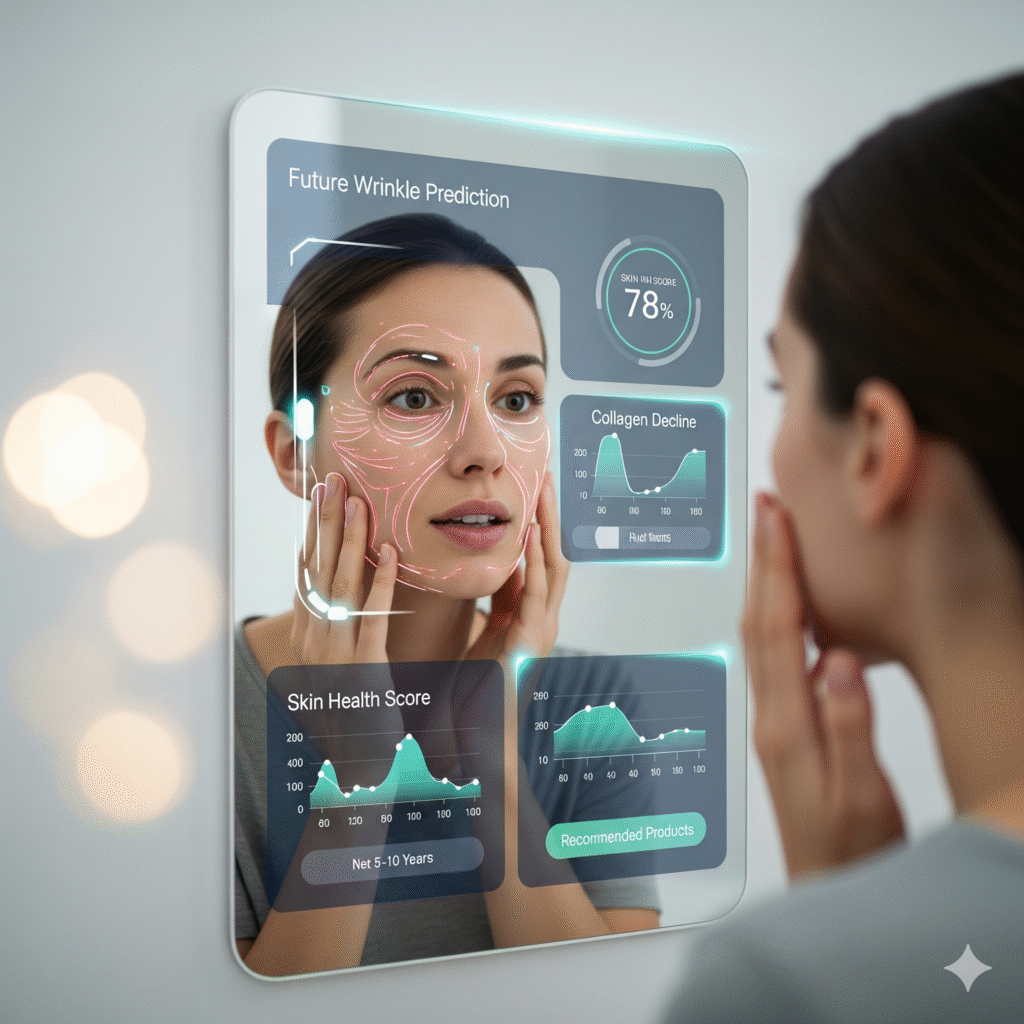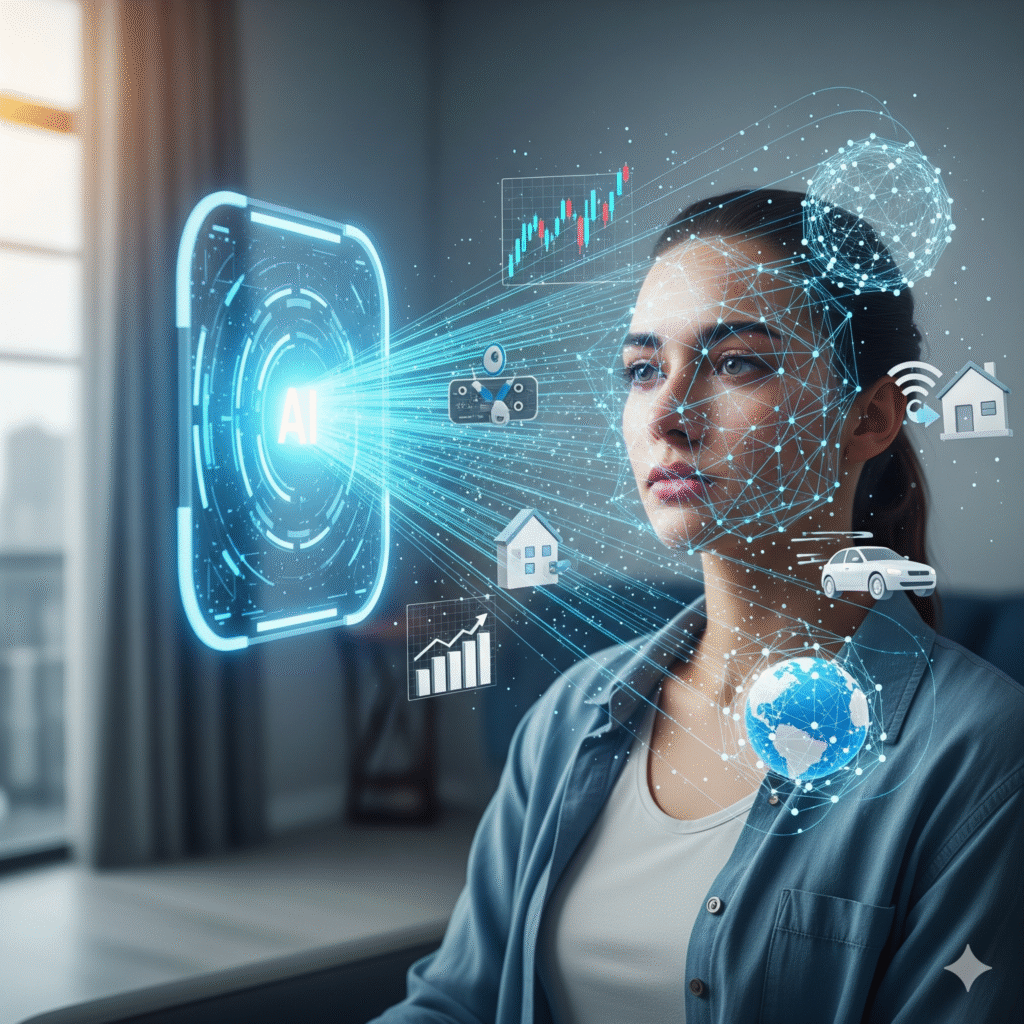Introduction: Are Our Faces Already Controlled by AI?
In the past, fashion magazines and beauty industries dictated trends. Today, Artificial Intelligence (AI) is reshaping not just how we look online but also how we perceive beauty in real life. AI-driven algorithms are now capable of predicting facial trends of the future, influencing cosmetic surgeries, skincare routines, social media filters, and even how workplaces perceive “professional looks.”
👉 The shocking reality is that our faces may soon be designed by AI, rather than by nature or personal choice.

Why AI is the New Architect of Human Faces
AI analyzes millions of facial images daily through apps, beauty platforms, and medical databases. These datasets allow AI to forecast emerging beauty trends years before they hit mainstream culture.
| AI-Driven Area | Impact on Facial Trends | Example |
|---|---|---|
| Social Media Filters | Defines what looks “attractive” or “trendy” | TikTok, Instagram AI beauty filters |
| Cosmetic Surgery | AI-guided predictions on “ideal faces” for different regions | AI Face Morphing in clinics |
| Skincare & Dermatology | AI suggests treatments based on predicted aging patterns | L’Oréal’s AI-powered skincare tech |
| Digital Avatars & VR | AI predicts and sets digital standards for facial aesthetics | Meta & Ready Player Me avatars |

Case Studies: How AI is Already Shaping Our Faces
1. TikTok’s AI Filters
TikTok’s “Bold Glamour” filter became viral because it uses machine learning to reconstruct facial features with alarming realism. Millions started aspiring to look like their filtered selves, leading to increased demand for fillers, jawline contouring, and nose reshaping.
👉 Impact: Surge in Gen-Z considering cosmetic procedures inspired by AI filters.
2. South Korea’s AI-Powered Plastic Surgery Clinics
Seoul clinics use AI simulations to predict how a person will look in 5–10 years based on lifestyle and genetics. Patients choose surgeries not just to look good today but to stay “future beautiful.”
👉 Impact: AI has commercialized future beauty forecasting, pushing the cosmetic industry into predictive aesthetics.
3. L’Oréal’s AI Skin Diagnostics
L’Oréal’s AI skin analysis tool scans faces and predicts wrinkles, acne, and pigmentation trends over time. This influences skincare purchases, making beauty proactive instead of reactive.
👉 Impact: Global skincare is shifting towards AI-driven personalization.
The Shocking Predictions: What AI Sees in Our Future Faces
According to global AI trend reports, here’s what faces of the future may look like:
| Prediction | AI Insight |
|---|---|
| Symmetry Dominance | AI favors balanced features → future beauty will lean towards near-perfect symmetry. |
| Blend of Ethnic Features | AI predicts cross-cultural mixing in beauty → “global face” becomes norm. |
| Youthful Longevity | Anti-aging AI tools may delay visible aging → 50-year-olds may look 30. |
| Digital-First Faces | Avatars, metaverse, and AR will set beauty standards before real-world adoption. |
| AI-Suggested Surgeries | Cosmetic surgeons will increasingly rely on AI predictions for procedures. |

Practical Steps: How You Can Stay Ahead of AI-Driven Facial Trends
Here are easy daily steps and tools anyone can use:
- Track Future Aging with AI
- Use apps like FaceApp and Facetune AI (with caution) to understand projected changes.
- Website: Face++ AI → for real-time facial analysis.
- AI-Personalized Skincare
- Apps like SkinVision and YouCam Makeup analyze skin health and recommend treatments.
- Healthy AI Lifestyle Insights
- Use Lumen AI for metabolism tracking and AI wellness recommendations.
- AI predicts how diet and sleep will influence your facial aging.
- Experiment Safely with Virtual Surgery
- Try apps like ModiFace or Perfect365 before making permanent changes.
Key Insights That May Shock You
- 70% of Gen Z admit filters influence how they want to look in real life (Survey: Harvard AI Ethics).
- AI already controls cosmetic industry trends — surgeons rely on AI-based “future facial templates.”
- By 2030, 1 in 4 beauty treatments will be based on AI predictions, not human choice.
💡 Catchy One-Liner: “Your future face may already exist in an AI database.”
FAQ Section
Q1. Can AI really predict what my face will look like in 10 years?
Yes. AI tools analyze lifestyle, genetics, and environmental exposure to project aging patterns.
Q2. Will AI create a global standard of beauty?
Yes, AI is merging cultural beauty norms into a “universal face” through data aggregation.
Q3. Can AI help me look younger?
AI-powered skincare and predictive surgery consultations are already reducing visible aging signs.
Q4. Is it safe to rely on AI for cosmetic decisions?
AI can guide, but final decisions should involve human experts to ensure natural results and safety.
Conclusion: Are You Ready for Your AI-Designed Face?
AI is no longer just a tool — it’s a mirror into our future selves. From filters to facial surgeries, AI is setting new standards of beauty that may feel unavoidable in the coming years. Whether you embrace or resist it, the face of the future is likely to be AI-enhanced, AI-predicted, and AI-approved.



1 Comment
Pingback: AI in Plastic Surgery | Future of Cosmetic Enhancements